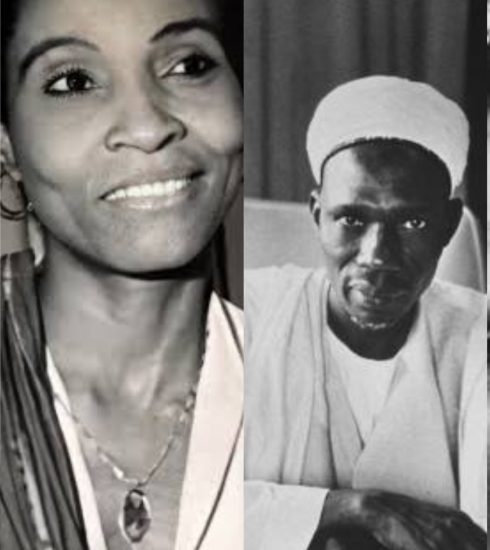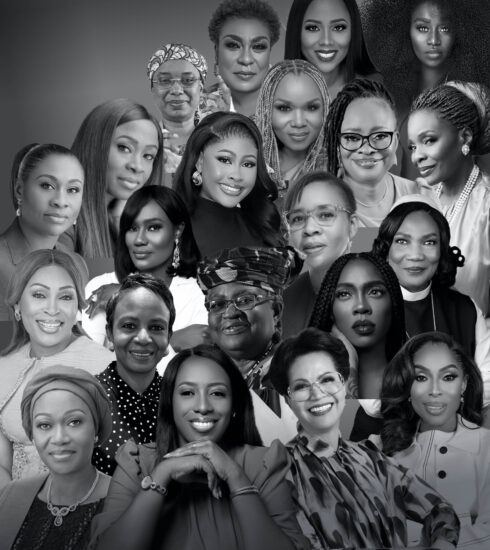Asiwaju Bola Ahmed Tinubu The Road To Aso Rock
Three months after the highly controversial presidential election, uncertainty still looms over the country’s democratic future. The rather forgetful elections, chaperoned by the Independent National Electoral Commission, INEC’s Chairman, Professor Mahmood Yakubu, presented a result announcing renowned political godfather, Asiwaju Bola Ahmed Tinubu, as the President-elect—a decision that is still being contested in the court till date.
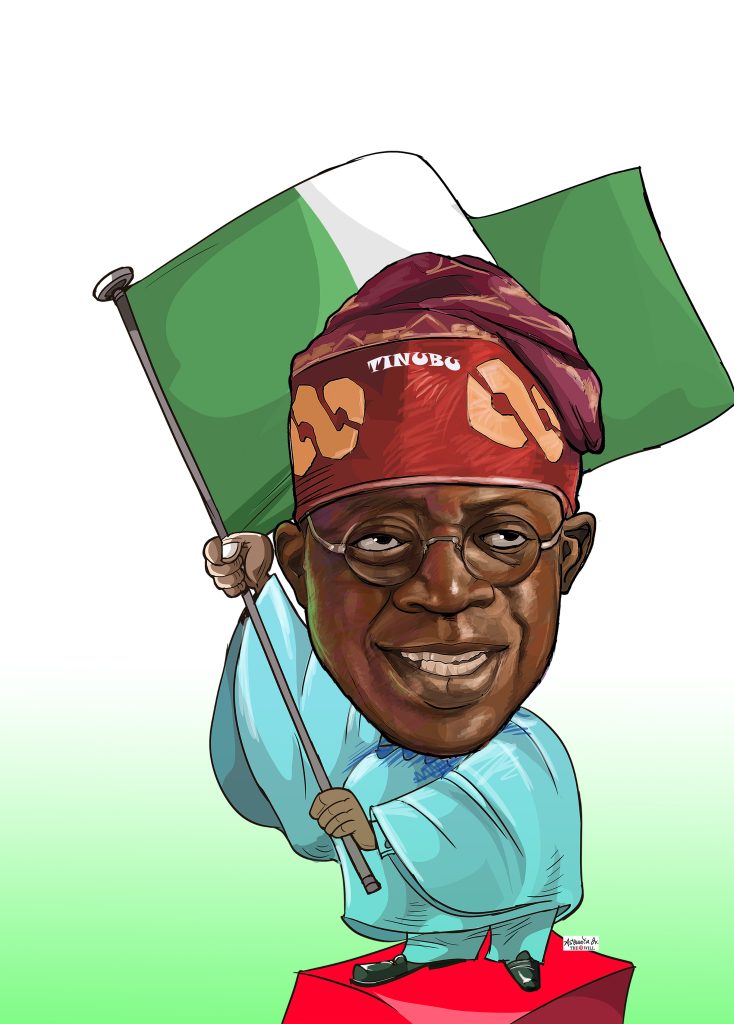
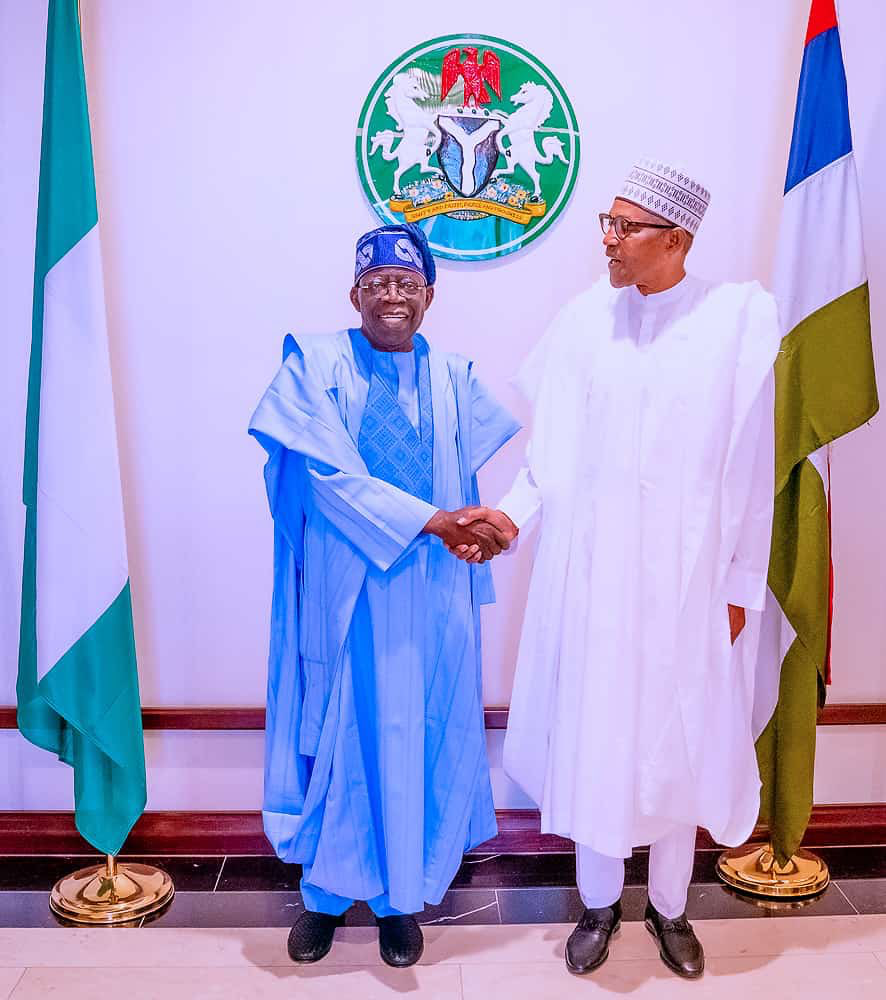
The Election…
Perhaps the most anticipated elections since becoming a democratic republic, Nigerians had mighty expectations going into the elections.
With the outgoing administration playing a major role in shaping the political outlook of the country’s democracy, prompting the formation of a third youthinvested force, outrightly winning the past election and keeping the ruling party in power proved a difficult task. But an election happened. One that was four years in the making, wielding the singular objective of installing the next president, whether the people agree to its methods or not. This method, and its resulting conclusion, are what is being debated at the Court of Appeal.
The announcement made by INEC on the 1st of March, 2023, revealed that the presidential poll had declared Tinubu, representing the APC, as the winner among 17 other candidates who participated in the election. According to the official declaration, Tinubu secured a total of 8,794,726 votes, surpassing Atiku Abubakar of the PDP, who garnered 6,984,520 votes, and Peter Obi of the Labour Party, who came in third with 6,101,533 votes. Both Atiku and Obi expressed their disagreement with the outcome of the presidential election and decided to challenge it.
The petitioners raised various allegations against the validity of Tinubu’s election victory. They claimed he was not duly elected by the majority of lawful votes cast during the election and accused him of engaging in corrupt practices. Additionally, they criticized INEC for its failure to comply with the provisions of the Electoral Act, 2022, during the conduct and collation of election results across all 36 states of the federation.
The petitioners argued that Tinubu was ineligible to contest the election since the Vice-Presiden-elect, Kashim Shettima, had previously been nominated for a senatorial election. They also pointed out that the President-elect had faced allegations in a drugrelated case in the past. In response to the petitions, Tinubu has submitted legal documents seeking their dismissal.
Apart from the candidates representing the PDP and LP, the Action Alliance (AA) and the Allied Peoples Movement (APM) also challenged the declaration of Tinubu as the winner of the presidential election.
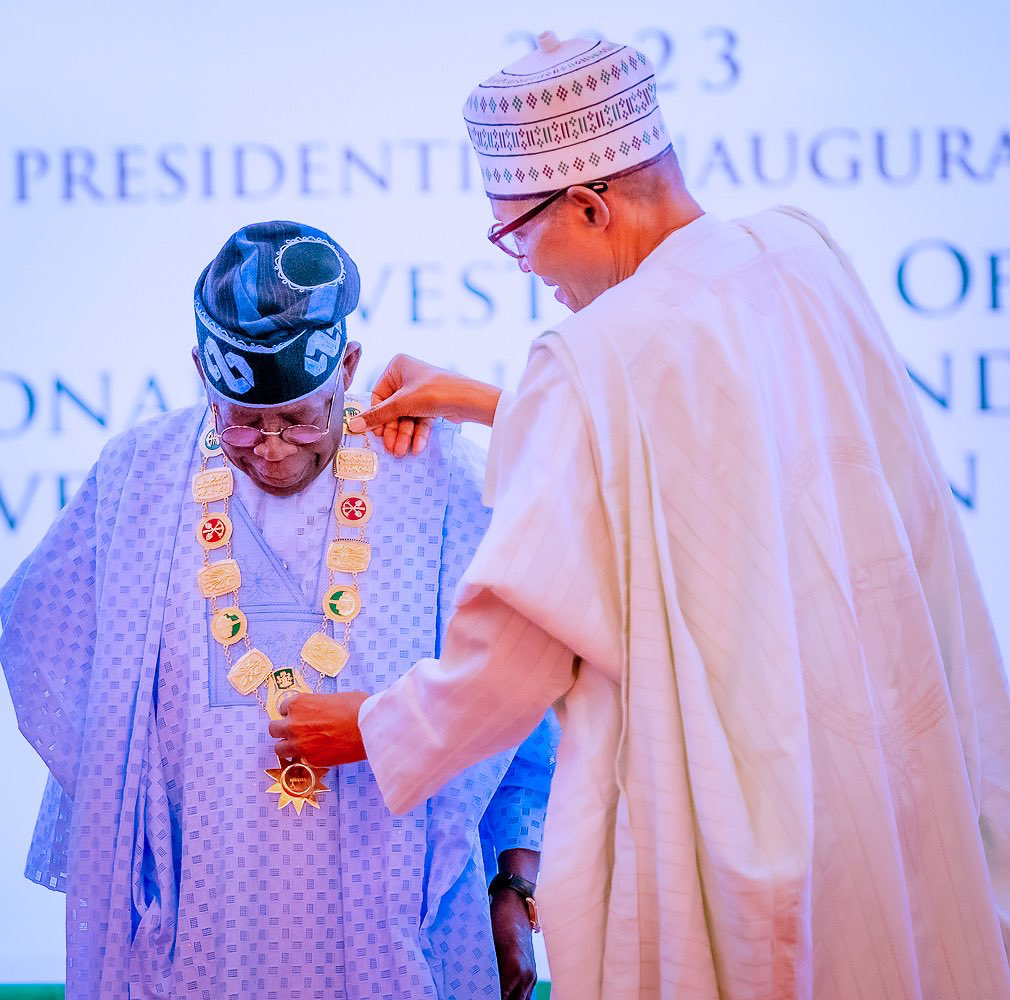
The Petitions…
The lawsuits brought by Atiku Abubakar, Peter Obi, and the Allied Peoples Movement (APM) to contest Bola Tinubu’s election as president-elect of Nigeria were ordered to be merged by the Presidential Election Petition Court (PEPC) in Abuja last Tuesday, the 23rd of May, 2023. According to the panel’s chair, Mr. Tsammani, using paragraph 50 of the First Schedule of the Electoral Act 2022, merging the petitions would serve the interests of justice.
Mr. Tsammani stated, “The justice of these petitions requires that this petition be consolidated.”
In this legal context, consolidation, governed by Rule 42 of the Federal Rules of Civil Procedure, refers to the joining of two or more legal proceedings or disputes involving a single issue of law or fact into a single comparative class action.
Cases that have been consolidated may be tried as a single matter and result in a single verdict, or they may maintain their individual identities. Depending on the court’s discretion, it may also try one typical case and issue a ruling that applies to all other cases.
As a result, it is constitutional and not a political choice like the live broadcast of the proceedings that Atiku and Obi’s legal team proposed—a motion rejected by the PEPC last Monday.
With the merging of the three pending petitions, the court is required to wrap up the case and issue a ruling on all pending lawsuits by the 16th of September instead of delaying action until the 180-day hearing period has passed. So, before the specified day, the petitioners must gather all their witnesses to testify in court.
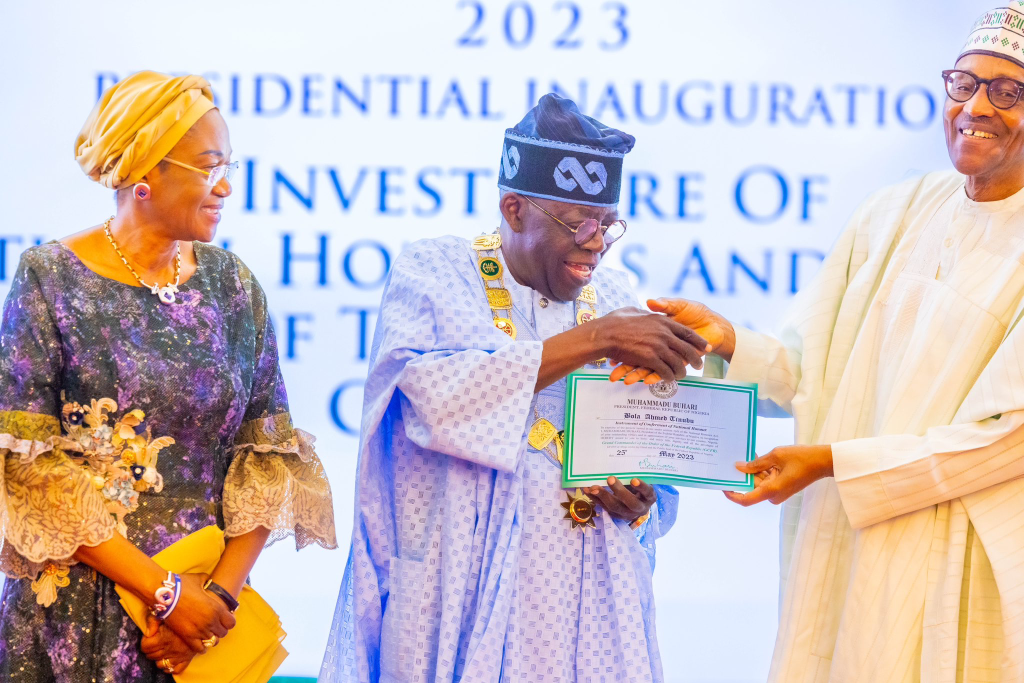
Obi’s prayers
1. (i) That it be determined that at the time of the Presidential Election held on the 25th of February 2023, the 2nd and 3rd Respondents (Tinubu and Shettima) were not qualified to contest the election.
(ii) That it be determined that all the votes recorded for the 2nd Respondent in the election are wasted votes, owing to the non-qualification/ disqualification of the 2nd and 3rd respondents.
(iii) That it be determined that on the basis of the remaining votes (after discountenancing the votes credited to the 2nd Respondent), the 1st petitioner (Mr. Obi) scored a majority of the lawful votes cast at the election and had not less than 25 per cent of the votes cast in each of at least 2/3 (two-third) of the states of the federation, and the Federal Capital Territory, Abuja, and satisfied the constitutional requirements to be declared the winner of the 25th of February 2023 presidential election.
2. That it be determined that the 2nd Respondent having failed to score one-quarter of the votes cast at the presidential election in the Federal Capital Territory, Abuja, was not entitled to be declared and returned as the winner of the presidential election held on the 25th of February 2023.
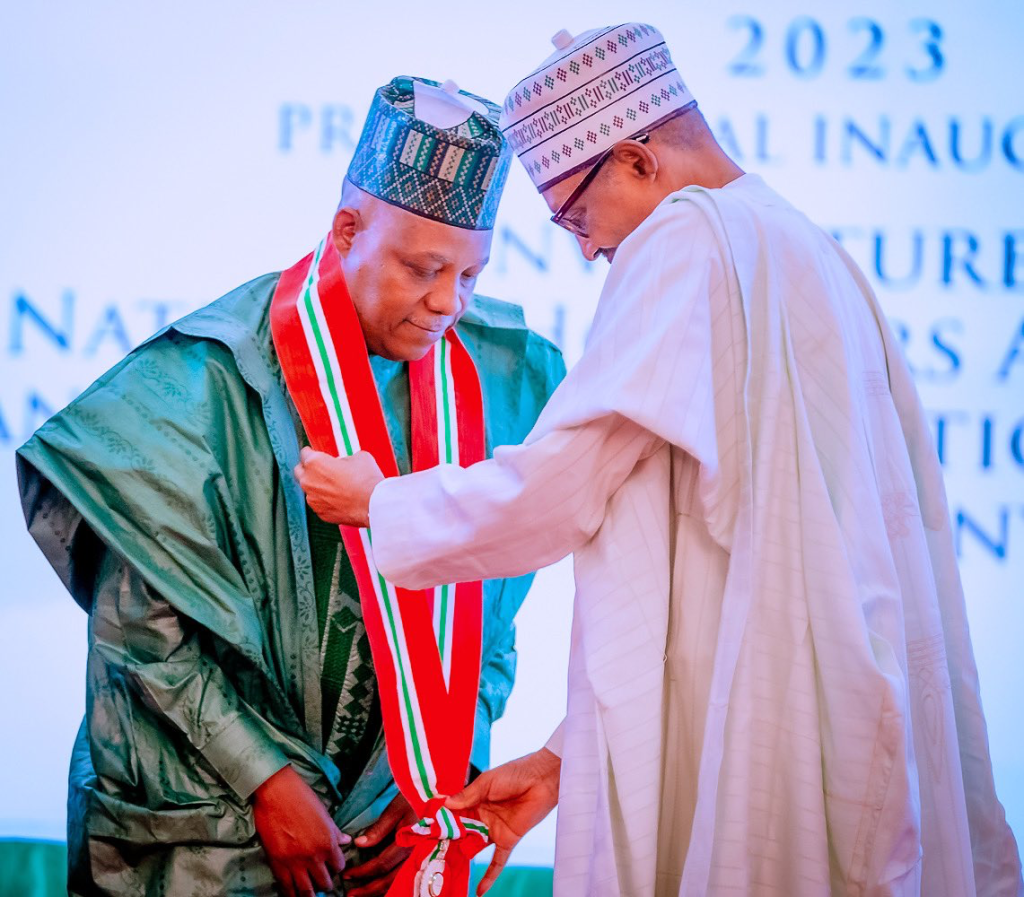
IN THE ALTERNATIVE TO 2 ABOVE:
3. An order cancelling the election and compelling the 1st Respondent to conduct a fresh election in which the 2nd, 3rd and 4th Respondents shall not participate.
IN THE ALTERNATIVE TO 1, 2 AND 3 ABOVE:
4. (i) That it may be determined that the 2nd Respondent was not duly elected by a majority of the lawful votes cast in the election for the office of the President of the Federal Republic of Nigeria held on the 25th of February 2023; and therefore, the declaration and return of the 2nd Respondent as the winner of the Presidential election are unlawful, unconstitutional and of no effect whatsoever.
(ii) That it be determined that based on the valid votes cast at the Presidential election of the 25th of February 2023, the 1st Petitioner scored the highest number of votes cast at the election and not less than one-quarter of the votes cast at the election in each of at least two-thirds of all the States in the Federation and the Federal Capital Territory, Abuja and ought to be declared and returned as the winner of the Presidential election.
(iii) An Order directing the 1st Respondent to issue the Certificate of Return to the 1st Petitioner as the duly elected President of the Federal Republic of Nigeria. (iv) That it be determined that the Certificate of Return wrongly issued to the 2nd Respondent by the 1st Respondent is null and void and be set aside.
FURTHER ALTERNATIVES TO 1, 2, 3 AND 4 ABOVE
5 (i) That the Presidential election conducted on the 25th of February 2023 is void on the ground that the election was not conducted substantially in accordance with the provisions of the Electoral Act 2022 and Constitution of the Federal Republic of Nigeria 1999, as amended.
(ii) An order cancelling the Presidential Election conducted on the 25th of February 2023 and mandating the 1st Respondent to conduct a fresh election for the office of President, the Federal Republic of Nigeria.

Atiku’s prayers
In seeking to upturn Mr Tinubu’s victory, Atiku set out seven prayers.
He urged the court to determine that Mr Tinubu was “not duly elected by a majority of lawful votes cast, and therefore the president-elect’s victory “is unlawful, wrongful, unconstitutional… null and void.”
Atiku prayed the court to determine that Mr Tinubu, at the time of the election, was not qualified to contest the said election.
“That it may be determined that the return of the 2nd Respondent (Mr Tinubu) by the 1st respondent (INEC) was wrongful, unlawful, undue, null and void having not satisfied the requirements of the Electoral Act and constitution…” which mandatorily requires Mr Tinubu “to score bot less than one quarter (25%) of the lawful votes cast at the election in each of at least two-thirds of all the states in the federal and the Federal Capital Territory, Abuja.”
He urged the court to declare him the presidential election winner, as he “scored the majority of lawful votes cast at the presidential election”.
In the alternative, Atiku asked the court to make an “order directing” INEC “to conduct a second election (run-off) between” him and Mr Tinubu.
“That the election to the office of the President of Nigeria held on the 25th of February 2023, be nullified and a fresh election be ordered,” the petitioners prayed.
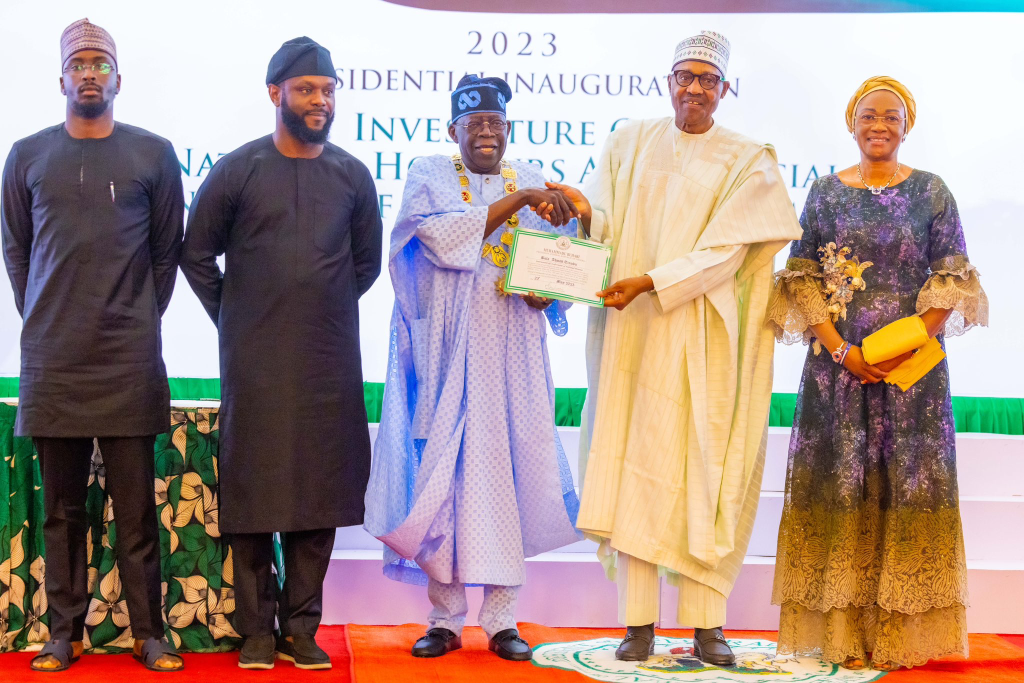
APM’s prayers
On its part, the APM filed a petition against the outcome of the February 25th presidential election on the 20th of March, asking the tribunal to declare Atiku as the president-elect.
In its petition, the APM, whose presidential candidate, Chichi Ojei, polled 25,961 votes, argued that Tinubu was not properly sponsored by the APC by fielding Shettima as vice presidential candidate for the election.
Tinubu, while submitting his presidential nomination form to INEC in June 2022, chose Ibrahim Masari, a politician from President Muhammadu Buhari’s home state Katsina, as a “placeholder” for the substantive vice presidential candidate who would later be Mr Shettima.
Masari served as a placeholder and later announced his withdrawal from the position, which paved the way for Tinubu to name Mr Shettima as his running mate on the 10th of July 2022.
The APM referenced this as one of its major grounds for complaint over the outcome of the presidential election.
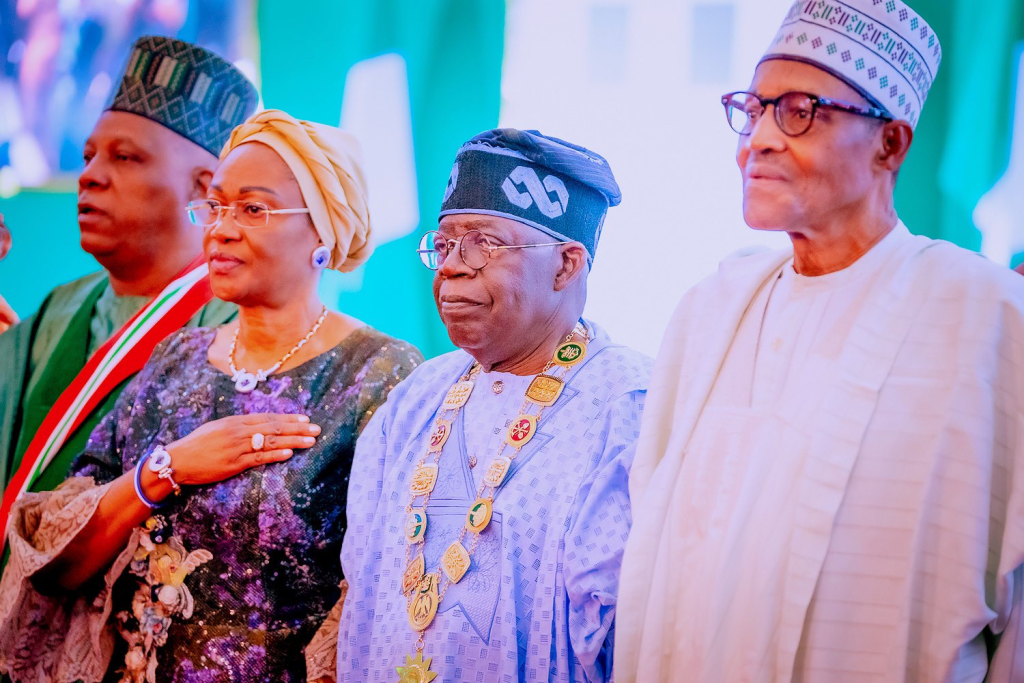
The Allegations…
Plaintiffs made allegations against Tinubu, asserting that he holds dual citizenship in Guinea Republic despite his affidavit submitted to the Independent National Electoral Commission (INEC) affirming his Nigerian citizenship. The plaintiffs argue that his failure to fully disclose his multiple citizenships amounts to perjury.
According to the plaintiffs’ legal filings, perjury is a serious offence under Nigerian law. It involves intentionally deceiving the court or judges by providing false information under oath, contrary to the deponent’s knowledge of the truth. Citing Section 117 of the Nigerian Criminal Code, the plaintiffs highlight that perjury carries a maximum penalty of 14 years imprisonment.
Furthermore, the plaintiffs contend that if Mr. Tinubu were to be sworn in as the President of the Federal Republic of Nigeria, he would be granted immunity from prosecution. They argue that allowing him to assume this position without addressing the alleged perjury would result in irreparable damage to both the plaintiffs and the Nigerian population.
The plaintiffs also refer to a document obtained from Chicago State University, obtained under subpoena, which they claim reveals inconsistencies in Mr. Tinubu’s personal information. They allege that the document, titled ‘Academic Record,’ indicates that the person known as Tinubu was born in 1954, contradicting the official claim of a 1952 birthdate.
Furthermore, the plaintiffs assert that the true and original Bola Tinubu, who enrolled in Chicago State University, was female, not male.
Based on these allegations, the plaintiffs are seeking the following orders from the court:
1. Nullification of Mr. Tinubu’s candidacy as fielded by the All Progressives Congress (APC) for the presidential election held on the 25th of February, 2023.
2. Direction for the detention of Mr. Tinubu by the appropriate authorities to prevent his swearing-in as President of the Federal Republic of Nigeria, pending the resolution of the presidential election petition before the Court of Appeal, which will determine the rightful winner of the 25th of February, 2023 election conducted by the relevant electoral body.
The court will ultimately determine the merits of these allegations and the appropriate course of action.
However, on the 29th of May, the Presidency is bound to proceed with the swearing-in ceremony that will see Tinubu’s status upgraded from President-elect to the President of the Federal Republic of Nigeria under oath. The country’s democracy has never been this uncertain since the turn of the millennium.
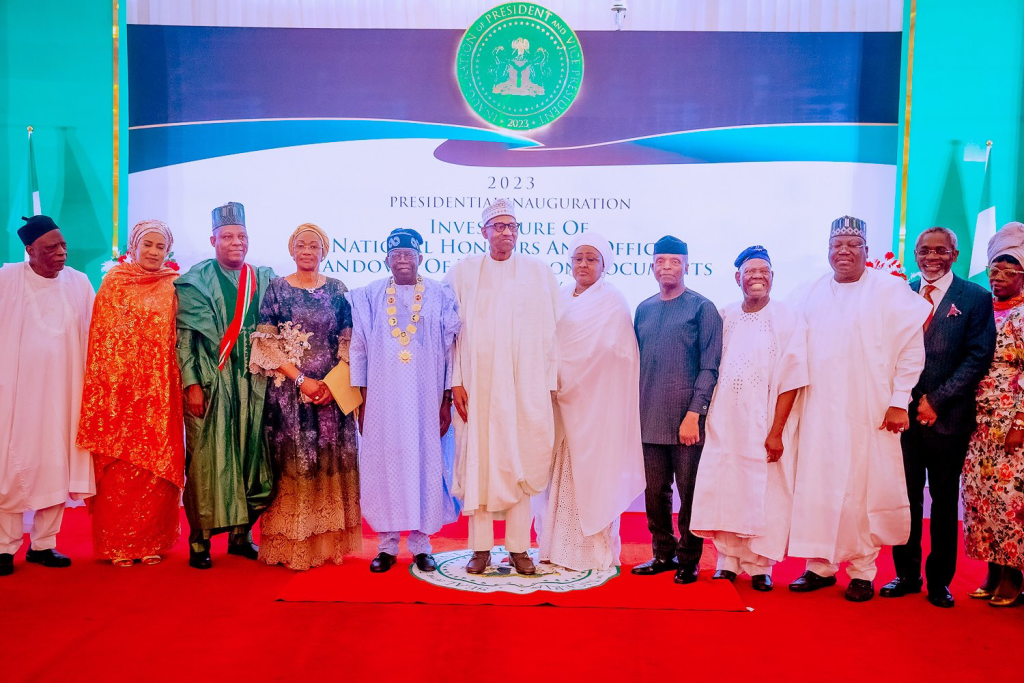
The Democracy…
Until four years ago, Democracy Day in Nigeria was celebrated on the 29th of May each year, marking the day when the country transitioned from military rule to civilian government in 1999.
The date was ultimately moved to the 12th of June by President Buhari, a change effected to commemorate the events of the June 12th 1993 elections that saw Nigerians come out en-masse to vote, bearing the hope of a free election after which the presumed winner, the late MKO Abiola, along with Nigerians, were denied their rights and their choice. It is a significant event in our history, symbolizing the restoration of democratic governance and the commitment to uphold democratic principles.
Regarding the swearing-in of a new president in Nigeria, it typically occurs after a presidential election. The Nigerian constitution stipulates that presidential elections should be held every four years, usually in February. If the incumbent president is reelected or a new president is elected, the swearing-in ceremony takes place on the 29th of May, which is the day the new presidential term begins.
During the swearing-in ceremony, the president-elect takes an oath of office, affirming their commitment to uphold the constitution and serve the Nigerian people. The event is usually attended by dignitaries, government officials, foreign diplomats, and the general public. It is an occasion to celebrate the democratic process and the peaceful transfer of power, founded on the pulpit of concession of defeat by every other opposing party and candidate.
This year however, the ceremony is bound to leave a sour taste in the mouth of most Nigerians who are running out of faith in not just the electoral body but also the judicial system, with a feeling that will not dissipate until the eventual ruling of the Supreme Court.
The feeling that their mandate was stolen from them.
Self-identifies as a middle child between millennials and the gen Z, began writing as a 14 year-old. Born and raised in Lagos where he would go on to obtain a degree in the University of Lagos, he mainly draws inspiration from societal issues and the ills within. His "live and let live" mantra shapes his thought process as he writes about lifestyle from a place of empathy and emotional intelligence. When he is not writing, he is very invested in football and sociopolitical commentary on social media.





